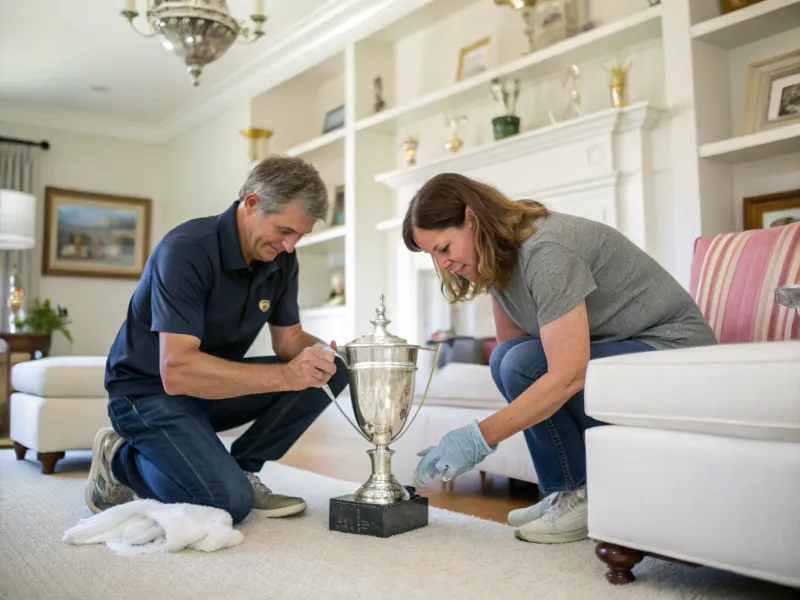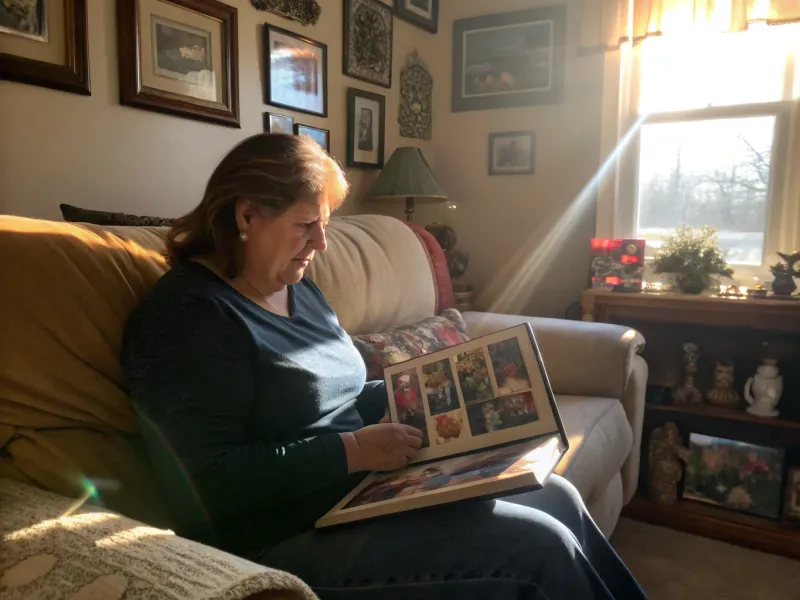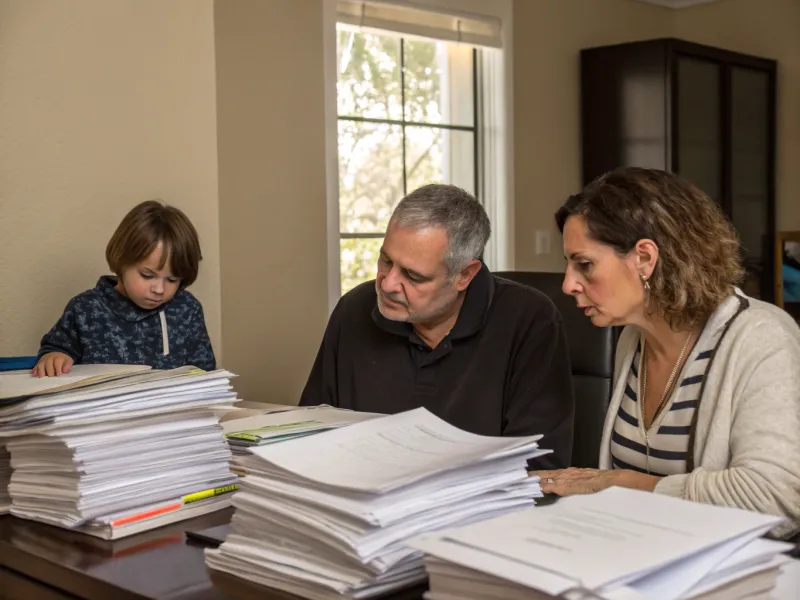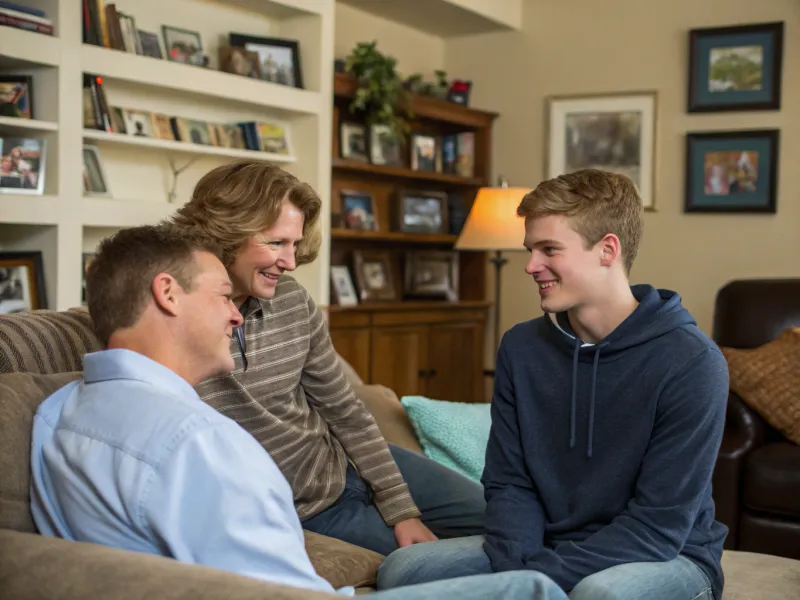32 Hard Truths About Why Some Parents Lose Their Relationship With Their Adult Children
Ever wondered why some parents end up being more like distant relatives to their adult children? In today’s chaotic world, the bond between parents and their grown-up kids can sometimes stretch thinner than a piece of chewing gum stuck to the bottom of a shoe.
Whether it’s due to generational gaps, misunderstandings, or simply drifting apart over time, this post explores the 32 tell-tale signs of parents who aren’t as chummy with their adult offspring as they might like to be.
Let’s unravel the quirks, habits, and behaviors that might just be the culprit behind this familial estrangement. Grab a cup of coffee as we dive into a humorous, yet insightful exploration of these parent-child dynamics.
1. Overbearing Control Freaks

Ever feel like a puppet on a string when you talk to your mom or dad? Overbearing control freaks are experts at pulling those strings. They have a tight grip on every detail of their adult child’s life, from career choices to romantic partners. While they might think they’re being helpful, their actions often push their children away.
Instead of fostering closeness, this behavior can feel suffocating. These parents might show up unexpectedly, offering ‘advice’ that sounds more like commands. The intention often isn’t malicious, but it stems from a place of wanting to remain relevant and involved.
The irony is, in trying to stay connected, they often achieve the opposite. Adult children crave independence and respect, not a constant reminder of their childhood. So, if you’re hearing, ‘Have you considered a different career?’ yet again, it might be time for a gentle conversation about boundaries.
2. Negative Nancy & Negative Ned

Some parents seem to have an unending supply of doom and gloom, earning them the title of Negative Nancy or Negative Ned. Every silver lining has a cloud, and they never hesitate to point it out. This constant negativity can create a rift between them and their children.
When conversations are filled with ‘what ifs’ and worst-case scenarios, it’s tough for adult kids to engage enthusiastically. They might start avoiding calls or visits altogether to escape the never-ending cycle of pessimism.
If you find yourself being the bearer of bad news more often than not, it might be time to flip the script. Try focusing on the positives and encouraging open, optimistic conversations. Not only will it lighten the mood, but it might just bring you closer to that cherished offspring.
3. Emotionally Unavailable Robots

Picture trying to hug a statue. That’s what it’s like for adult children dealing with emotionally unavailable parents. These parents might be present physically, but emotionally? They might as well be on another planet.
This absence of emotional connection can lead to feelings of neglect and isolation. Adult kids might feel like they’re talking to a brick wall, where their emotions are neither acknowledged nor validated.
To bridge this gap, it’s crucial for parents to actively listen and engage. Showing empathy and understanding can be the key to breaking down those walls. Try putting down the phone during family dinners and really tuning into the conversation. You’ll be amazed at what a little emotional availability can do for your relationship.
4. Judgmental Judy & Judgemental Jerry

No one likes to be judged, especially by their own parents. Judgmental Judy and Jerry have a knack for finding faults and pointing them out with precision. Whether it’s lifestyle choices, appearance, or life decisions, nothing escapes their scrutiny.
This constant critique can make adult children feel inadequate and unappreciated. Instead of feeling supported, they might feel like they’re on trial every time they interact with their parents.
Switching from criticism to curiosity can make a world of difference. Parents should try asking questions and showing genuine interest in their children’s lives without jumping to conclusions. This approach fosters a more open and supportive relationship, rather than one filled with judgment.
5. Perfectionist Pete & Patty

Perfection is the enemy of progress, but Perfectionist Pete and Patty didn’t get the memo. These parents have sky-high expectations for their children, expecting them to excel in every area of life. Unfortunately, this often leads to stress and disappointment instead of closeness.
The pressure to be perfect can cause adult children to distance themselves. They may hide their failures or avoid sharing parts of their lives where they feel they don’t measure up.
Parents can break this cycle by celebrating effort over outcome. Encourage your children to strive for their personal best, but also remind them that it’s okay to stumble along the way. Emphasizing growth and learning rather than perfection can help bridge the gap between parents and their adult kids.
6. Busy Bee Betties

In the hustle and bustle of modern life, it’s easy to become a Busy Bee Betty. These parents are always on the move, with packed schedules that leave little room for quality time with their children.
While they might be working hard to provide for the family, they risk neglecting the emotional needs of their children. Adult kids can feel sidelined, as if they’re just another item on a never-ending to-do list.
Carving out dedicated family time can help Busy Bee Betties reconnect with their offspring. Even a simple weekly phone call or a monthly lunch date can make a big difference. Remember, it’s not about the quantity of time spent, but the quality that counts.
7. Financially Dominant Frank & Frances

Money talks, but sometimes it mumbles and creates misunderstandings. Financially Dominant Frank and Frances use money to maintain control over their adult children, often leading to dependence rather than closeness.
While financial support can be helpful, it can also become a tool for manipulation. Adult children might feel obliged to comply with their parents’ wishes, even if it goes against their own desires or values.
The solution lies in finding a balance between support and independence. Encourage open discussions about finances, and allow your children to make their own financial decisions. This way, you’ll foster trust and autonomy, rather than resentment.
8. Technologically Challenged Terrys

Navigating the digital world can be like trying to read hieroglyphics for some parents. Technologically Challenged Terrys often rely on their adult children to guide them through the maze of gadgets and apps.
While this dependency can create bonding opportunities, it can also lead to frustration. Adult kids might feel like they’re always on tech support duty, which can strain the relationship.
To turn this around, parents can take proactive steps to learn on their own. Attend workshops or use online tutorials to become more tech-savvy. This not only eases the burden on your children but also opens up new ways to connect, like sharing memes or video calls.
9. Guilt-Tripping Graces

Emotional manipulation is an art, and Guilt-Tripping Graces have mastered it. They use guilt to influence their adult children’s decisions, often without realizing the long-term impact.
Phrases like “You never visit anymore” or “I guess I’ll just spend the holidays alone” can tug at the heartstrings, but they also breed resentment. Adult children might start avoiding interactions to escape the emotional burden.
The key to overcoming this is open communication. Parents should express their feelings honestly without laying on the guilt. By fostering a more positive and understanding environment, you’ll likely see a change in your relationship dynamics.
10. Enabling Enablers

Some parents have a hard time letting go, becoming Enabling Enablers in the process. They continue to support their adult children financially or emotionally, even when it’s time to encourage independence.
While their intentions are usually loving, this can stunt the growth of their children’s autonomy. Adult kids might become reliant, avoiding responsibilities they should be tackling on their own.
To foster growth, parents should focus on gradual transitions towards independence. Encourage your children to take on challenges and support them with guidance rather than solutions. This empowers them to stand on their own, strengthening the parent-child relationship in the process.
11. Nostalgic Normas

Ah, the good old days. Nostalgic Normas love reminiscing about the past, often at the expense of living in the present. They cling to memories of their children’s childhoods, finding it hard to accept them as adults.
While nostalgia can be sweet, it can also create a barrier. Adult children might feel suffocated by constant reminders of their younger years, hindering their own personal growth.
Embracing the present and celebrating new milestones is key. Parents can create new memories by acknowledging their children’s current achievements and aspirations. This shift in focus fosters a more supportive and forward-thinking relationship.
12. Helicopter Harry & Harriet

Ever feel like you’re being watched from above? Helicopter Harry and Harriet are known for their overzealous involvement in every aspect of their children’s lives. They hover, ready to swoop in at the first sign of trouble.
While their intentions are usually protective, this behavior can lead to a lack of autonomy for their adult children. It sends a message that they’re incapable of handling their own affairs.
To land the chopper, parents should practice giving space and trust. Allow your children to make their own decisions, even if it means letting them make mistakes. This empowerment strengthens the bond and builds mutual respect.
13. Self-Absorbed Sam & Samantha

All about ‘me, me, me,’ Self-Absorbed Sam and Samantha have little time or attention for their adult children. Their world revolves around their own needs and desires, often leaving their kids feeling neglected.
This self-centered behavior can create a disconnect. Adult children might feel like they’re competing for attention, leading to feelings of inadequacy and resentment.
Focusing on others can turn this around. Parents should make a conscious effort to listen and engage in their children’s lives. By showing interest and empathy, you’ll create a more balanced and fulfilling relationship.
14. Passive-Aggressive Pat & Patricia

Why say it directly when you can use snark? Passive-Aggressive Pat and Patricia are experts at indirect communication, often resorting to sarcasm and subtle digs to express their displeasure.
Such behavior can leave adult children feeling confused and frustrated. They might struggle to decipher the true meaning behind their parents’ words, leading to misunderstandings and strained interactions.
Clear, open communication is the antidote. Encourage honesty and directness in conversations. By addressing issues head-on, you can eliminate the guesswork and foster a stronger, more transparent relationship.
15. Overly Critical Carol & Carl

If there were an Olympic event for criticism, Overly Critical Carol and Carl would take home the gold. They scrutinize every aspect of their children’s lives, often leaving little room for praise.
This relentless critique can be demoralizing, causing adult children to withdraw to avoid further judgment. They might feel as though they can never live up to their parents’ expectations.
Shifting focus to encouragement can mend this rift. Parents should celebrate achievements and offer constructive feedback rather than constant criticism. This approach nurtures confidence and strengthens the parent-child bond.
16. Workaholic Wanda & Wally

For Workaholic Wanda and Wally, work never stops. They’re always busy, and their adult children often feel like they’re competing with a never-ending to-do list for attention.
This work-first mentality can lead to feelings of neglect and loneliness for their children. They might feel like they’re not a priority in their parents’ lives.
Finding work-life balance is key. Parents should make a conscious effort to carve out time for their children. Whether it’s a family dinner or a weekend getaway, these moments of connection can strengthen bonds and remind your children that they’re valued.
17. Drama Queen/King Dana & Dan

Every family has its drama, but for Drama Queen Dana and Dan, it’s always center stage. They thrive on conflict and emotional upheaval, often blowing minor issues out of proportion.
This constant drama can be exhausting for adult children, who might distance themselves to avoid getting caught in the storm. The whirlwind of emotions can strain relationships and create a sense of instability.
Peaceful coexistence is possible by dialing down the theatrics. Parents should strive for calm, rational discussions and focus on resolving situations without unnecessary drama. This creates a more stable and welcoming environment for their children.
18. Over-Explaining Oliver & Olivia

Do you ever feel like you’re getting a lecture every time you chat with your parents? Over-Explaining Oliver and Olivia can turn a simple conversation into a lengthy monologue.
This tendency to over-explain can come across as condescending, making adult children feel undervalued. They might tune out or avoid conversations altogether to escape the endless explanations.
To improve communication, brevity is your friend. Parents should practice active listening and allow conversations to flow naturally. Encouraging a two-way dialogue fosters mutual respect and understanding.
19. Unyielding Traditionalists

For Unyielding Traditionalists, change is a four-letter word. They’re deeply rooted in past values and traditions, often struggling to accept their children’s modern lifestyles.
This resistance to change can lead to conflict and misunderstanding. Adult children might feel like they’re constantly justifying their choices, which can drive a wedge in the relationship.
Embracing flexibility can bridge this divide. Parents should try to understand and accept new perspectives, even if they differ from their own. This openness can foster a more harmonious and accepting family dynamic.
20. Over-Scheduling Sergeants

For Over-Scheduling Sergeants, downtime is a myth. They fill every moment with activities, leaving little room for spontaneity or relaxation.
While an active lifestyle can be enriching, it can also be overwhelming. Adult children might feel like they’re on a never-ending treadmill, leading to burnout and avoidance.
Finding balance is crucial. Allow for unstructured time where family members can relax and recharge. This flexibility can lead to more genuine interactions and foster a closer family bond.
21. Comparing Cathys

Comparison is the thief of joy, but some parents just can’t help themselves. Comparing Cathys constantly measure their children against others, creating unnecessary competition.
This behavior can breed resentment and low self-esteem in adult children. They might feel like they can never measure up, leading to feelings of inadequacy.
Focusing on individuality is the antidote. Parents should celebrate their children’s unique qualities and achievements without comparing them to others. This approach fosters a more supportive and loving relationship.
22. Overprotective Olive & Otto

Protecting children is natural, but Overprotective Olive and Otto take it to an extreme. They shield their kids from every potential harm, often stifling their independence.
This overprotection can lead to a lack of confidence and autonomy in adult children. They might struggle to make decisions or face challenges on their own.
Encouraging independence is key. Parents should gradually loosen the reins and allow their children to navigate life’s ups and downs. This empowerment leads to personal growth and a stronger parent-child relationship.
23. Indifferent Ida & Ike

Indifference can be just as damaging as direct conflict. Indifferent Ida and Ike seem detached and uninterested in their children’s lives, creating a sense of neglect.
This lack of engagement can lead to feelings of abandonment and loneliness in adult children. They might feel like they’re not important or valued in their parents’ eyes.
Rekindling interest is essential. Parents should show genuine curiosity and involvement in their children’s lives. This active engagement fosters a sense of belonging and strengthens familial bonds.
24. Resentful Ritas

Sometimes, parents can’t help but feel envious of their children’s opportunities. Resentful Ritas harbor feelings of jealousy, often letting those emotions interfere with their relationships.
This resentment can create tension and distance. Adult children might feel guilty for their success or avoid sharing accomplishments to prevent conflict.
Cultivating gratitude and appreciation can dissolve these feelings. Parents should focus on their own achievements and find joy in their children’s successes. This shift in perspective fosters a more positive and supportive relationship.
25. Stubborn Steves

For Stubborn Steves, compromise is a rare commodity. They cling to their opinions and resist change, often creating conflict with their adult children.
This inflexibility can lead to misunderstandings and strained interactions. Adult children might feel like they can’t express themselves without causing an argument.
Open-mindedness can break down these barriers. Parents should practice listening and considering different viewpoints. This willingness to adapt fosters a more respectful and harmonious family dynamic.
26. Micromanaging Marthas

Micromanaging Marthas love to be involved in every detail, but this hands-on approach often leads to tension. They scrutinize their children’s lives with a meticulous eye, leaving little room for autonomy.
This constant oversight can be suffocating for adult children. They might feel like they’re not trusted to make their own decisions, leading to frustration and withdrawal.
Trust is the foundation of a healthy relationship. Parents should allow their children to take the lead and offer support rather than control. This empowerment nurtures independence and strengthens the parent-child bond.
27. Meddling Medleys

Meddling Medleys can’t resist poking their noses into their children’s affairs. Whether it’s relationships, career choices, or friendships, they’re always ready with unsolicited advice.
This interference can create tension and resentment. Adult children might feel like they’re constantly defending their choices or keeping secrets to maintain peace.
Boundaries are the solution. Parents should respect their children’s autonomy and provide advice only when asked. This respect for boundaries fosters trust and a more relaxed relationship.
28. Disinterested Debbie

Disinterested Debbie often appears aloof and emotionally distant when interacting with her adult children. She struggles to engage in meaningful conversations, frequently turning to her phone or other distractions.
This behavior leaves her children feeling undervalued and ignored, as they yearn for genuine connection and attention. Debbie’s lack of engagement can lead to feelings of isolation in her children, who may eventually distance themselves in response.
To bridge this gap, Debbie could focus more on active listening and showing genuine interest in her children’s lives. Small steps, like putting down her phone during conversations, can make a significant difference.
29. Impatient Ian

Impatient Ian often rushes interactions, showing little tolerance for delays or lengthy discussions. His hurried demeanor can make his children feel pressured and undervalued during conversations.
This impatience can lead to superficial interactions, where deeper connections are seldom formed. Ian’s lack of patience might cause his children to avoid sharing significant life updates or emotions with him.
By practicing patience and being present in the moment, Ian can foster more meaningful interactions with his children, allowing their relationship to flourish over time.
30. Frugal Fred And Fiona

Frugal Fred and Fiona embrace a lifestyle of extreme frugality. Their homes are filled with stacks of coupons and they can often be found hunting for deals. While their thriftiness is admirable, it sometimes overshadows precious moments with loved ones.
Their adult children may feel burdened by constant reminders to save money, potentially straining relationships.
Fred and Fiona’s frugal ways, although meant to ensure financial security, might inadvertently communicate a lack of trust in their children’s financial decisions, leading to emotional distance.
31. The Unsolicited Life Coach

Ah yes, the Unsolicited Life Coach—you know the type. Every phone call turns into a surprise seminar on how to live your best life (according to them). Whether it’s your diet, career, or how often you vacuum your apartment, they’ve got opinions—and they’re not shy about sharing them.
While the intention is often loving, this nonstop advice train can feel like a runaway ride you didn’t ask to board. Adult children need room to make their own choices, even if those include a few wrong turns.
Instead of coaching from the sidelines, try cheering from the stands. Sometimes, a listening ear speaks louder than a motivational speech. You might be surprised at how often they do come to you for advice when they feel safe, not scrutinized.
32. The Eternal Baby-Talker

“Oh honey, did you eat today?”—cue the flashbacks to lunchbox notes and crustless sandwiches. The Eternal Baby-Talker means well, but treating adult children like toddlers wrapped in grown-up clothes can be a one-way ticket to eye-roll city.
Using baby voices or coddling language might come from a place of deep affection, but it can make adult children feel infantilized rather than respected. It’s hard to discuss taxes or trauma with someone who still calls you their “little munchkin.”
Shifting to more mature, equal footing doesn’t erase the bond—it deepens it. Speak to them like the capable adults they are. You can still be nurturing without the nursery rhymes.







